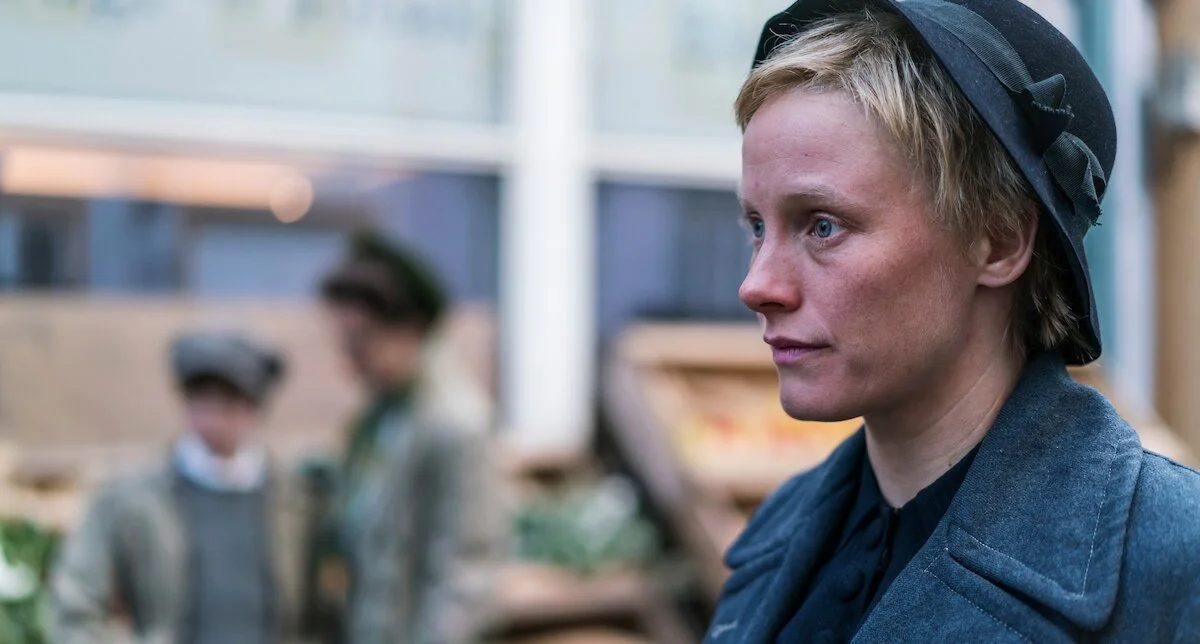The Birdcatcher
A wartime tale that never achieves any sense of authenticity.
Laura Birn
In some respects, the publicity for The Birdcatcher suggested that it would be well worth seeing. One learnt that the story which it told was one set in Norway in 1942 and that it centred on a 14-year-old Jewish girl named Esther who had been living in Trondheim but who, during the German occupation, was forced to flee and to make for the Swedish border. En route, she would encounter a farmer’s son, Aksel (Arthur Hakalahti), and find temporary security lending a hand on his father’s farm. Such a tale sounded promising as a reflection of life in Norway at that time and there was the further encouragement that the cast included Jakob Cedergren (so brilliant in 2018’s The Guilty) as the farmer and August Diehl as Herman, a German officer on duty in that region. As against that, however, the advance information also carried what many would regard as a warning: it appeared that, despite boasting a foreign cast, the film would be in English.
As soon as the film begins, the English dialogue strikes a false note but, even if The Birdcatcher had been in Norwegian with subtitles, it would have carried little credibility. It is ably photographed in ’Scope and colour by John Christian Rosenlund but it is burdened by a trite and persistent music score from Jim Copperthwaite. Furthermore, while the film is described as having a 14-year-old heroine, Sarah-Sophie Boussnina looks far too old for the role of the teenage Esther. If the telling of the tale makes it seem unbelievable, there is in any case the question of how true the details of the story are.
It would seem to be the publicity rather than the film itself that makes the claim that The Birdcatcher (the title a quote from Psalm 91) is inspired by true events. In so far as this work is based on the wartime plight of Jews living in Norway who met with persecution there it obviously does reflect reality. On the other hand the plot offered here seems contrived to a ludicrous degree: Esther successfully passes herself off as a boy (which as shown is hard to credit in itself), is treated by the farmer like an adopted son, witnesses the infidelity of the farmer’s wife (Laura Birn) with Herman, is attracted to young Aksel and finds that a plan to escape with him gets put off when he is enticed to stay on while watching a film show. To all this can be added touches of stylisation involving dream sequences built around Esther’s hopes of becoming an actress: this involves her in quoting and rehearsing lines from ‘Macbeth’ more than once and, indeed, the film’s climax involves so many deaths that it seems to be pitching itself as some kind of Shakespearean tragedy! The director Ross Clarke is British but, with the odds stacked against him like this, it is impossible to say if a Norwegian filmmaker would have fared any better. At least in that case we might have been spared this Nordic tale being utterly undermined from the start through the use of the English language.
MANSEL STIMPSON
Cast: Sarah-Sofie Boussnina, Arthur Hakalahti, Laura Birn, Jakob Cedergren, August Diehl, Johannes Kuhnke, Jonas Hoff Oftebro, Anders Baasmo Christiansen.
Dir Ross Clarke, Pro Lisa Black, Leon Clarance and Ross Clarke, Screenplay Trond Morten Kristensen, Ph John Christian Rosenlund, Pro Des Åsa Nilsson, Ed Nicolas Garten and Laura Morrod, Music Jim Copperthwaite, Costumes Anne Isene.
Motion Picture Capital/Garnet Girl/Voltage Pictures-Signature Entertainment.
96 mins. Norway/UK. 2019. Rel: 4 October 2019. Cert. 15.


